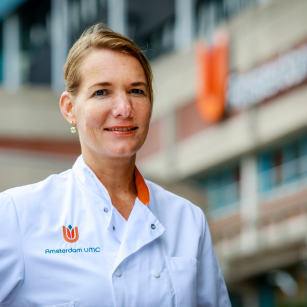Together with other knowledge institutions, industry partners, and societal organizations, Pijnenburg created a multidisciplinary team that aims to improve the diagnosis of frontotemporal dementia (FTD) and young-onset Alzheimer’s disease (YOAD) by creating a novel test battery that captures affected non-memory domains and develop data-driven models that define the most vulnerable and earliest affected brain regions in non-memory YOAD and FTD phenotypes. With these tests and artificial intelligence models, the consortium wants to speed up the diagnosis of young-onset dementia and support treatment opportunities.
Mission-driven policy
The severity of dementia is becoming increasingly evident in our society. Dementia can have a huge impact on the social participation and quality of life of patients. In addition, the disease also has a huge effect on the immediate environment. NWO wants to support research into these major societal challenges and contribute to the Dutch government’s mission-driven top sector and innovation policy with their Knowledge and Innovation Covenant (KIC) program. One of their subsidies addresses 'Living with dementia' for which two research projects have been awarded funding, including the project of Pijnenburg and colleagues. Together, the two projects will receive 5.25 million euros. Social and private partners will also contribute an additional 936.000 euros in co-funding. The maximum duration of the projects is six years and they will start in the second half of 2022. The two awarded projects focus their interdisciplinary research on the key technology artificial Intelligence.
Artificial intelligence in diagnosis of AD
The diagnosis of young-onset disorders causing dementia, such as YOAD and FTD is often delayed since these disorders frequently present with non-memory symptoms, such as problems with behavior, social cognition, language, or perception. These symptoms have been associated with focal degeneration of specific cortical brain regions, but there is still a lack of understanding of why and how these regions are affected. The consortium, led by Pijnenburg, wants to improve the diagnosis of FTD and YOAD by identifying the specific cortical brain regions and using artificial intelligence to generate comprehensive and meaningful clinical-biological YOD subtypes. With the aim of artificial intelligence, the consortium envisions earlier and accurate diagnosis and the identification of targets for biomarker and drug development to facilitate individualized disease management, reduction of healthcare costs, and improved quality of life.

Collaboration is the key to success
This project combines expertise from all kinds of fields, including clinicians, language and AI experts, and basic scientists together with biotech companies, patient representatives, young entrepreneurs, ethic experts, and knowledge institutes. Project leader Yolande Pijnenburg: "Our goal is to improve the quality of life of people with dementia by 25% by 2030. I am convinced that we can only achieve this by combining our forces. We form an enthusiastic multidisciplinary research team that is largely embedded in Amsterdam Neuroscience with skills in the clinical, neuroimaging, neuropathological and molecular biology domains, accompanied by other knowledge institutes, companies and social organizations." Pijnenburg started October 1, 2020, as medical director of Alzheimer Center Amsterdam and professor of early-onset dementia. Last month she joined the board of directors of Amsterdam Neuroscience, one of Amsterdam UMC's research institutes together with the VU Amsterdam and University of Amsterdam. Together with the sixteen partners, Pijnenburg will put in her energy to enable better recognition and understanding of dementia at a young age.
Consortium partners
The partners, in addition to Amsterdam UMC, are VU University Amsterdam, University of Applied Sciences Utrecht, University of Groningen, Erasmus University Medical Center, Delft University of Technology, Winterlight Labs, Immuneering, BioSensics, Young-onset dementia Knowledge Center, Royal Melbourne Hospital, FTD Lotgenoten, Dutch Memory Clinic Network, Alzheimer Nederland, Team Alzheimer, Leiden University Medical Center and Amsterdam Neuroscience.
